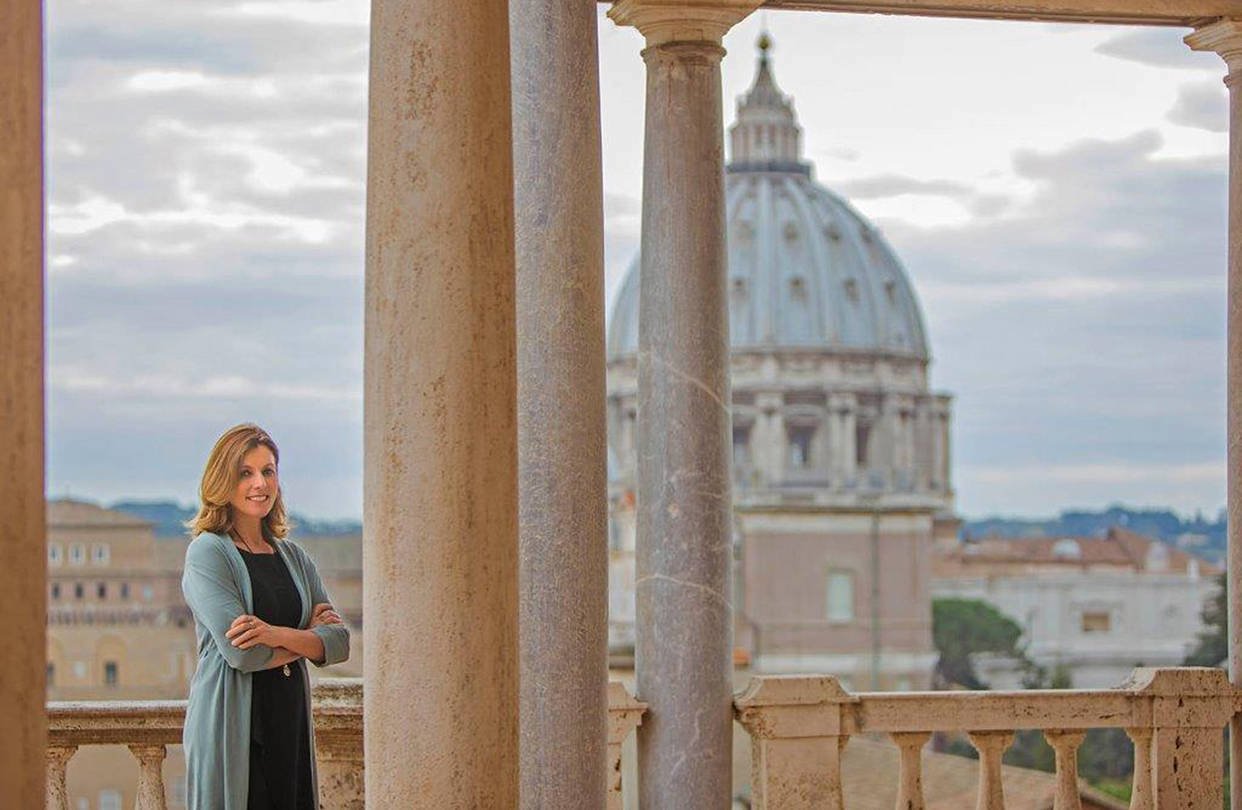
When Pope Francis I announced last December that he was appointing Barbara Jatta as director of the Vatican Museums, the news made waves around the world—primarily because she is the first woman to occupy the prestigious position.
Now, Jatta has revealed plans to shake things up inside Vatican City’s museums, planning expansions, re-openings, and additional recreations of its most spectacular spaces designed to travel abroad.
In what was a first for the Holy See, it authorized a $2.4 million replica of the Sistine Chapel based on detailed photographs to be mounted in Mexico City last June. Jatta has designs to expand the ambitious project, proposing to recreate the Vatican’s four Raphael rooms, decorated by the artist between 1508 and 1524.
Today, Jatta will preside over the reopening of the Gregorian Profano Museum, which has been closed for more than 10 years. Also on her agenda is the re-opening of the Etruscan Museum in the Villa Giulia. But perhaps most intriguing is her focus on reinvigorating the Ethnological Museum—a part of the Vatican museum complex overlooked by its many visitors. She revealed that it has a special place in Pope Francis’s heart.
“The Ethnological Museum is a pet project of Pope Francis—he’s the first non-European pope in over 1,000 years—and we want people to see the scale of what we have,” Jatta recently told Wallpaper. A plan to add 8,000 square meters of exhibition space to the gallery is slated for next year, allowing for more of its 80,000-strong collection to go on view. Papal gifts from around the world—ranging from aboriginal death totems and Islamic scrolls—that were long hidden in storage are due to go on display as part of the revamp.
All of Jatta’s changes usher in a new era for the Vatican museums. Might contemporary art be next on the agenda? If this year’s documentary, Pope Francis: My Idea of Art, provides any clue, Pope Francis is up for it: He expressed a desire to collaborate with contemporary artists to harness art’s evangelical power and influence. But the transition may be a slow one. After participating in the Venice Biennale in 2013 and 2015, the Vatican did not return this year.